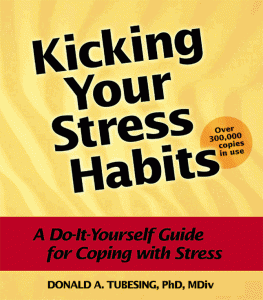Just as laughter is a part of relationships, so are tears. We are reluctant to talk about fighting as a relationship tool, but a clean, fair fight can help. Avoiding fights isn’t a good solution. People who bottle it up are just as stressed as those who constantly bicker. Don’t fight over everything; compromise and pick your battles and words carefully. Be sure you know exactly why you want to fight. It’s easy to get caught up and not understand what’s wrong.
Don’t pick a fight at a time or place that gives you the upper hand. Pick a time when you can both sit down and talk logically, and wait until you’re both calm. Don’t be petty and take a cheap shot to get the last word. If the fight has lost steam, let it go. Don’t hit below the belt, but also, don’t wear your belt around your neck. Being too sensitive will close off things you may need to fight about. You know where the line is; there’s no need to be disrespectful and hurt someone for the sake of gaining ground in an argument. Don’t drive the other person into a corner either. Cornered people panic and don’t fight fair, and this just ends up hurting you both. Avoid always or never (you never listen, you always make me feel like this). Fighting isn’t something that we want to do, but clearing the air is better for everyone involved.
Honesty and time to think can help alleviate a lot of the stress that causes unnecessary fights. Assertive, Flight, and Nest-Building skills help prevent fights that you don’t really need.
Assertive skills maintain honesty. Respect yourself and your partner. Don’t be afraid to say no if you mean it. Practice saying it in a mirror if you have to — it becomes natural with time. Saying no doesn’t have to be permanent. It’s ok to say “I can’t now, but in the future if I can”. However, don’t use this as a cop out, and only say this if you mean it! Making excuses opens a door for a fight later on.
Flight skills help you put some distance between you and your stress long enough to calm down. It can be as simple as taking a nap, or letting your mind relax. Give yourself a few moments to decide how you really feel about something. If you need more time, sleep on it – give yourself 24 hours before acting on any major decisions you make.
Nest-building skills supply you with a place to retreat to when you need to get away. It gives you security and comfort. Is there a place in your home where you can really relax? Try rearranging your home so things that help you relax are all in one spot. For a quick and easy fix, repaint a room a color you enjoy. It gives you a space your own to go to.

